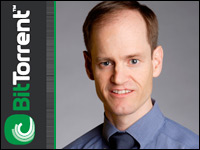
Drivers have become accustomed to security cameras that catch a license plate number when someone violates a traffic law at toll booths and even stoplights. However, the lowly traffic camera is sparking a whole new debate in its role as part of the homeland security initiative that the New York Police Department has for Wall Street and contiguous areas of Manhattan.
The department plans to install throughout the area up to 3,000 such cameras as part of the Lower Manhattan Security Initiative, The New York Times reported Monday. Expected to launch later this year, the security network should be completed by 2010.
Numbers and Faces
The cameras will be equipped with face-recognition software and the capability to discern license plate numbers. However, such software still lacks accuracy, Khalid Kark, senior analyst with Forrester Research, told TechNewsWorld.
“There has to be some intelligence or another layer filtering that data,” he said, “and there’s a lot of information being thrown at you” from face recognition software.
However, New York City Police Commissioner Raymond Kelley only confirmed to the Times that the system will include cameras able to recognize plate numbers, remote-controlled gates that will be able to block certain intersections on command, and a center for personnel. The planned system emulates the “Ring of Steel” implemented in London as part of anti-terrorism measures.
Privacy and Policy
Even if the system only will be used to track license plate numbers, it is still arousing the ire of those concerned with civil rights and privacy. However, such monitoring is “routinely being done around the globe,” Kark noted.
The fact that the New York system is based on London’s — which officials have claimed played a pivotal role in arrest of terrorism suspects several times in the past few years — is key when considering privacy issues, asserted Kark.
“I’d say Europe is much more concerned with privacy issues than the U.S., in general,” he noted. “But in spite of that, there’s been more and more intrusion in terms of privacy.”
The central question is how the NYPD will ensure that the data gathered from the cameras is not misused, Kark pointed out. Policies no doubt will be developed to limit who has access to the information garnered through the cameras, he said. However, information security policies often lack in the area of implementation.
“Government employees tend to sometimes not be as conscious of implementing those policies,” Kark said.
Recent security breaches at the U.S. Department of Agriculture and other government agencies made public people’s social security numbers, credit card numbers and other private data, he noted.
“If you have a system like this, you have to have adequate protection,” Kark stressed. “That’s not just technology, but processes and training.”





















































